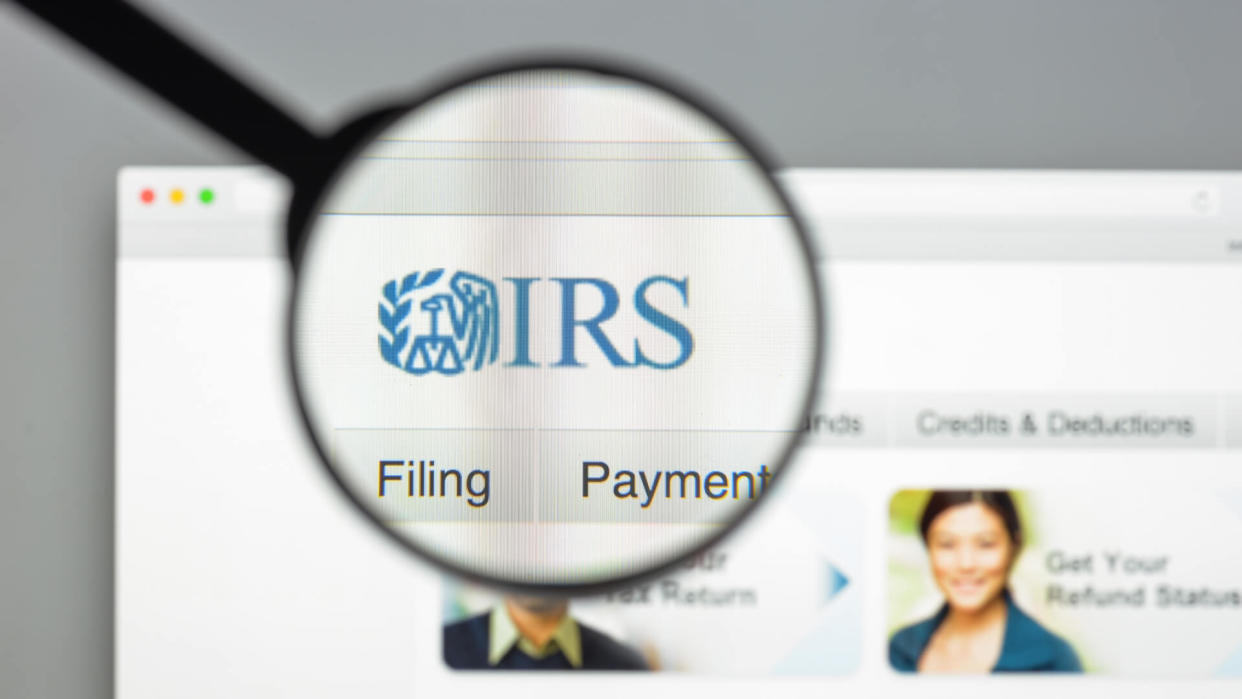How To Identify and Report Tax Preparer Fraud to the IRS

A decade ago, a Pew Research Center study found that 33% of Americans claimed that they did their own taxes while 56% said someone else prepared their returns. Over the years, as the IRS implemented modern digital customer service solutions, more taxpayers are choosing to file electronically.
See: Pros and Cons of Living in a State With No Income Tax
Read: 3 Signs You’re Serious About Raising Your Credit Score
However, the majority of U.S. taxpayers still use a tax professional to file, per USA Today. That being said, members of Gen Z are least likely to do so, and tax filing software has become more advanced as time goes on — meaning that there remains a balance between those who opt for professional tax prep and the DIY crowd. For many, the anxiety that comes with getting one’s taxes right (and the fear of filing a return with mistakes) are good motivators to place your tax information in the hands of a pro.
No matter how diligent you might normally be, tax preparer fraud can happen to anyone. Becoming the victim of a criminal who has, for example, prepared false tax returns to inflate a refund (or consciously included deductions for non-existent items) can have painful consequences. You may be forced to prove your innocence, and identity, to the IRS and other authorities.
You should be as attentive to your tax return while it is being prepared as you were gathering all your personal financial information. Ultimately, it is your name on the return, so no matter who prepares it, you are responsible for it being correct.
Here are some tax preparer scam warning signs, as well as how to report preparer fraud and restore your financial sense of security.
How To Identify Tax Preparer Fraud
Be careful when choosing a tax return professional: This may sound obvious but you shouldn’t cut corners on something as personally and financially important as a tax return. Find someone with an established business and a good reputation.
Is your tax preparer even a professional?: Just because someone knows how to prepare tax returns, it doesn’t mean they are filling them out correctly or legally. If your preparer refuses to sign the return or enter a Preparer Taxpayer Identification Number (PTIN) — don’t proceed. The PTIN is a necessary requirement for any paid tax prep service to hold. Check the IRS’s Directory of Federal Tax Return Preparers with Credentials and Select Qualifications.
Look out for other red flags: If something seems fishy, it probably is. Recognizing red flags early could save you from becoming a tax preparer fraud victim. If you are being promised a large refund — before your preparer knows anything about your financial profile, or if your preparer is taking a fee based on your refund instead of a flat prep fee — be skeptical. Don’t sign blank or incomplete forms when asked and don’t allow a refund to be sent to a bank account you don’t control.
Review your return and get a copy: “It’s important for taxpayers to be vigilant and, if possible, double-check their preparer’s work just to make sure that refund isn’t too good to be true,” said Ciaran McEvoy, a spokesman for the U.S. attorney’s office in L.A, as quoted by The Washington Post. You are paying for a preparer’s services, therefor you have the right to verify and review their work and are entitled to a copy. If they don’t allow you to double-check your return and are not given a copy of the completed return, terminate the process and file a complaint.
Take Our Poll: What Do You Plan To Use Your Tax Refund For?
How to Report Tax Preparer Fraud
Report the fraud to the police: Tax prep fraud is a crime. Contact your local police department and file a report naming the tax preparer as a suspect. Keep an official copy of the report to submit to the IRS.
Fill out IRS Form 14157-A, Tax Return Preparer Fraud or Misconduct Affidavit: As the Taxpayer Advocate Service notes, this forms details everything you need to submit to the IRS. Form 14157-A also allows you to provide an explanation of the misconduct and information about and your relationship to the tax “professional.”
Complete IRS Form 14157, Return Preparer Complaint: Tax Return Preparer: On this complaint form, you’ll need to fill out your information as a taxpayer, the return preparer’s information and details of the fraud complaint.
Collect proof of fraud: You’ll need to gather all relevant documents including your police report, a copy of the tax return provided to you by the return preparer, a signed copy of the tax return as you intended it to be filed, proof of an applicable refund amount (a bank statement or copy of a paper refund check), copies of documents you received from the tax return preparer, additional information about the tax return preparer, such as a copy of a business card, promotional flyer, or local business listing and anything else that will support your claim. Such items might include: a signed and dated statement providing an in-depth explanation of the misconduct, or any emails, texts or other correspondence between you and the tax preparer.
Send all official forms and tax documents to the IRS: Send your fraud report forms and supporting documentation to the address where you would normally mail your Form 1040, per the IRS.
Keep copies of everything you send for your records.
More From GOBankingRates
This article originally appeared on GOBankingRates.com: How To Identify and Report Tax Preparer Fraud to the IRS
